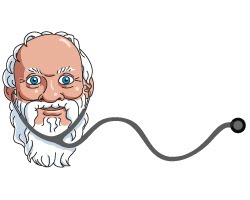I’ve argued in a few ways that a good Epicurean – and certainly an Epicurean sage – wouldn’t seek public office or a career in politics.
For Epicureans out there, it shouldn’t be hard to tell why. Politics fills our lives with stress and drama. It leads to exactly the kind of anxiety and mental anguish Epicurus advised us to avoid.
But I recently read an interesting set of essays called Epicurus and the Epicurean Tradition. In it, Jeffrey Fish plays devil’s advocate on behalf of Roman Epicurean politicians. To get there, Fish draws a distinction between desiring to participate in politics, on one hand, and reluctantly participating in politics because it’s the best choice, on the other.
In support, he also cites the work of Epicurean philosopher Philodemus. Philodemus’s work shows that Epicureans tolerated a wide range of professions among their practitioners. While the practice of philosophy and life among friends stood out as the Epicurean ideal, we find ourselves in many different life circumstances. Couldn’t even politicians practice Epicurean attention to tranquillity as an ideal?
Fish’s article didn’t exactly dislodge from me the view that the Epicurean shouldn’t seek out public office. But it does serve as an important corrective in some respects.
We shouldn’t be dogmatic in deciding, a priori which professions are OK and which aren’t. It’s entirely possible that a person finds themself in a situation where holding political office is the best way to promote tranquillity, both for themselves and for their friends and community. It’s also possible for even people who work in inadvisable professions to incorporate Epicurean insights into their lives.
On reading Fish’s article, I thought these were fair correctives. The Epicurean sage wouldn’t become a politician, but we can all benefit from incorporating Epicurean insights.
No matter our starting point.



